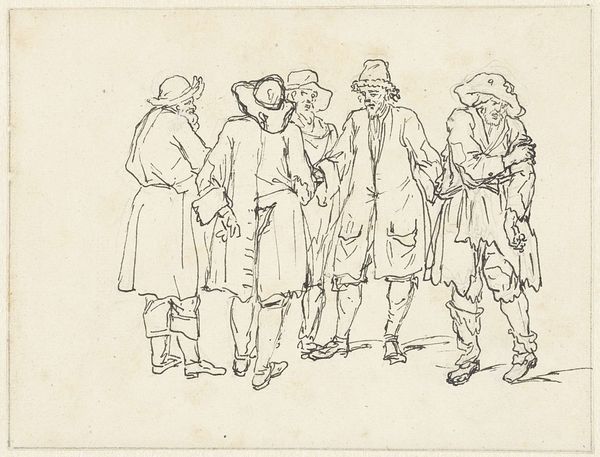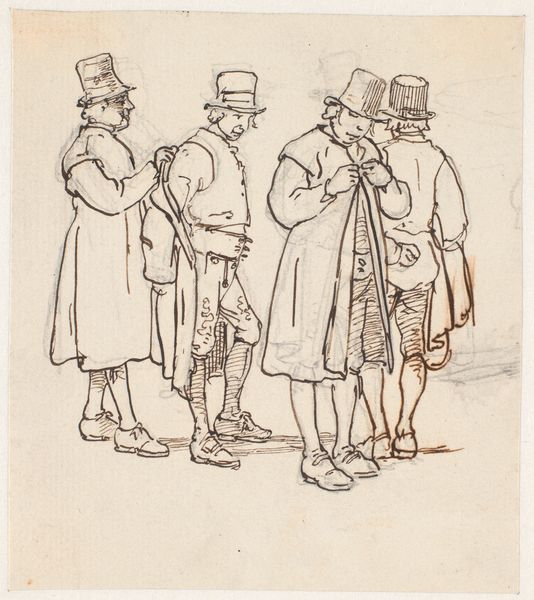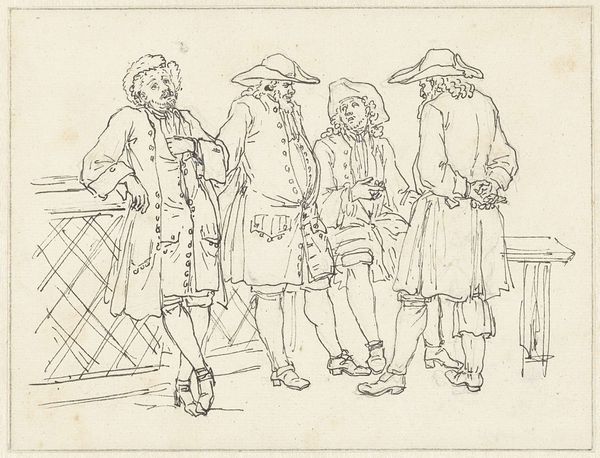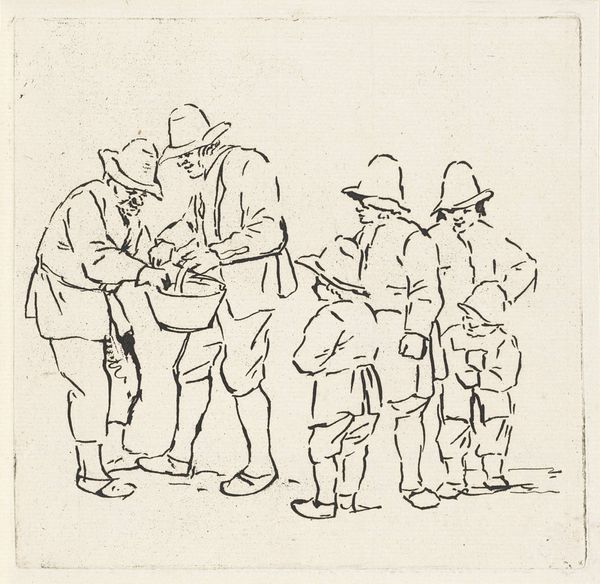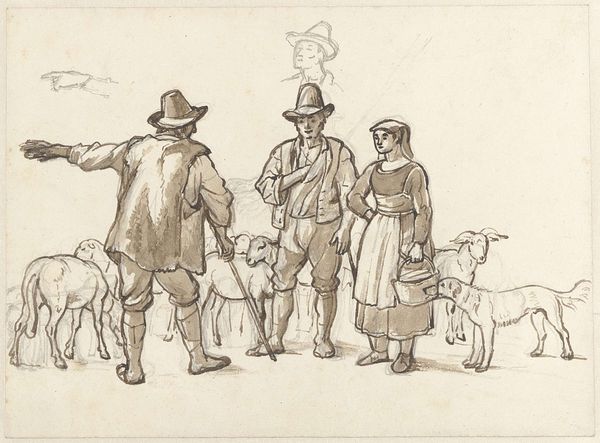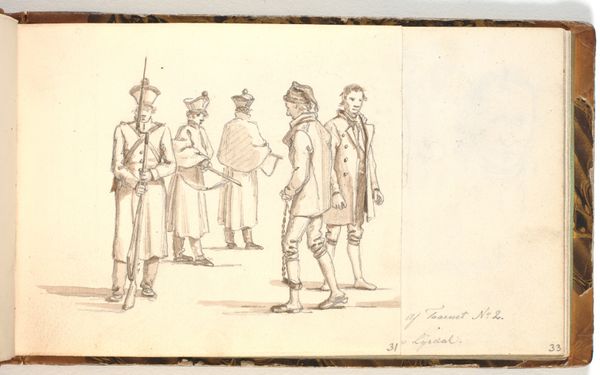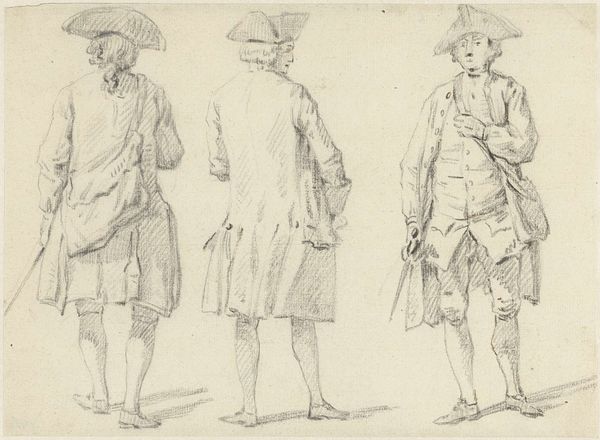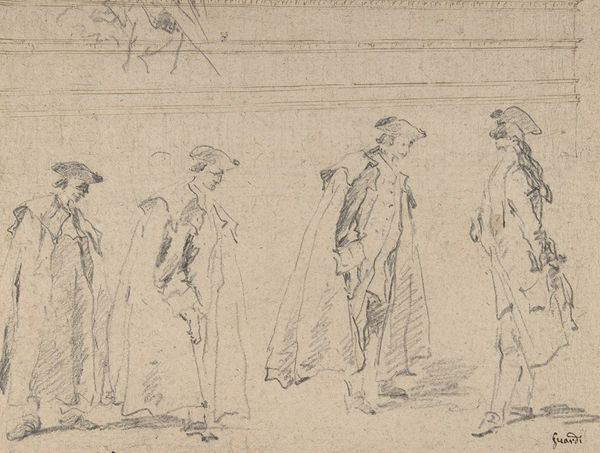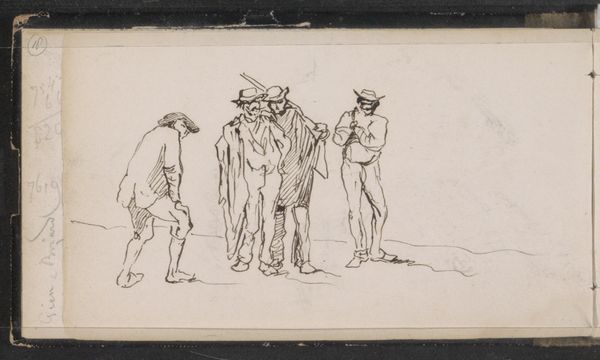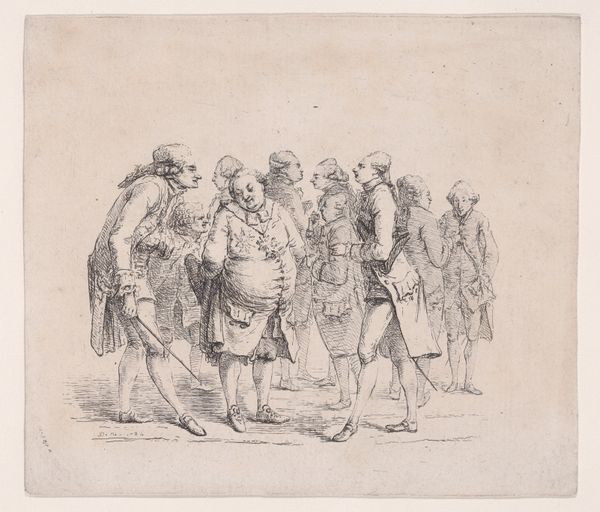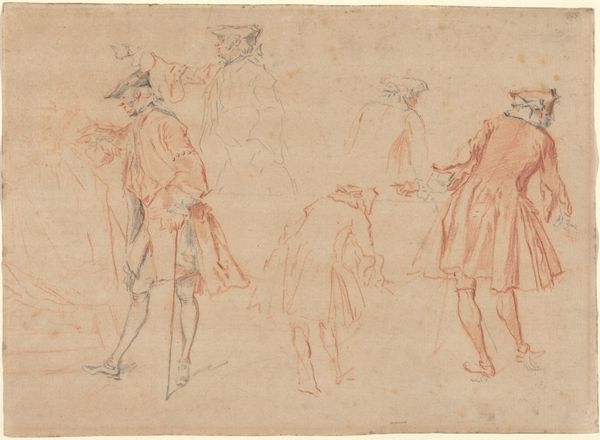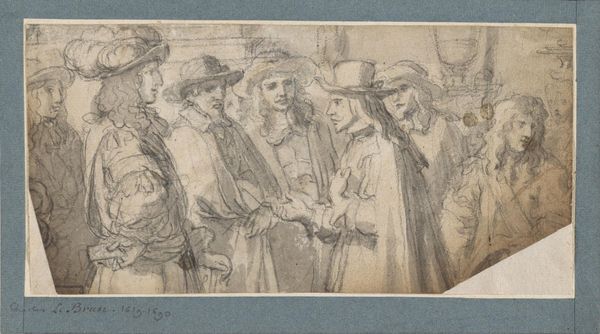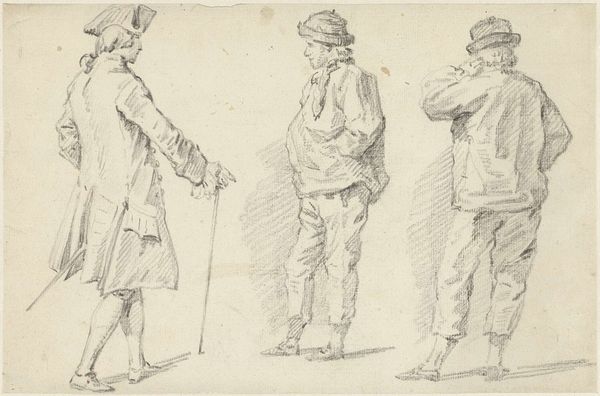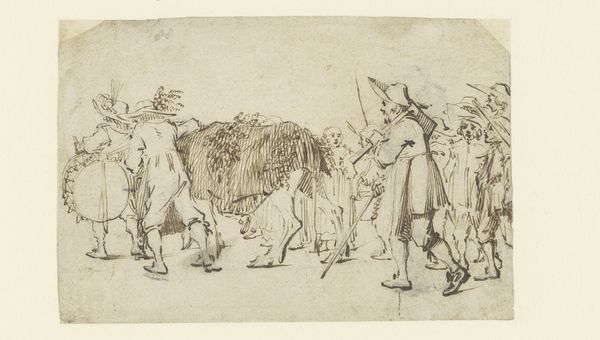
drawing, ink, pen
#
portrait
#
drawing
#
comic strip sketch
#
imaginative character sketch
#
quirky sketch
#
baroque
#
figuration
#
personal sketchbook
#
ink
#
idea generation sketch
#
sketchwork
#
pen-ink sketch
#
sketchbook drawing
#
pen
#
genre-painting
#
storyboard and sketchbook work
#
sketchbook art
Dimensions: height 130 mm, width 170 mm
Copyright: Rijks Museum: Open Domain
Editor: This drawing, "Schetsen van staande mannen met een jongetje," or "Sketches of standing men with a boy," created sometime between 1683 and 1733 by Bernard Picart, uses ink and pen. It's a whirlwind of lines, capturing figures in what looks like mid-conversation. What’s striking is how quickly Picart seems to have captured these individuals. As a historian, what do you notice first about this piece? Curator: What grabs me immediately is the deliberate construction of public identity here. It is like a stage where citizens, through their garments and gestures, played social roles. Notice the hats, the long coats. Do you get a sense of social status at play here? Editor: Absolutely. They definitely appear to be from the middle or upper classes based on their clothing. Their clothes are so detailed and large, like costumes, and seem like a clear social display. It's so clear from what they are wearing that these are wealthy landowners. Curator: Exactly. Now think about where this drawing might have been made. Was it intended for public consumption, or something more private? In this era, drawing allowed exploration of ideas of public and private roles. The performative aspects of social classes were still under development as new groups gained power. Editor: That's a great point. Given that it's a sketch, it was probably quite private – like a glimpse into the artist’s mind as he considered how status was communicated and played out in social life. Curator: Precisely. Consider then, the child in the image. Is this an individual or just a type? It may represent a very modern theme; the observation of society in the process of formation through future leaders. Picart then presents a critical approach in the function of art itself: should the artwork portray things as they are, or things as they might be? What do you think? Editor: That gives me a lot to think about! This quick sketch raises interesting questions about public persona, social class, and art's role in shaping it all. Curator: Indeed, the act of observing, recording, and disseminating images held a powerful place in forming public perceptions. Thanks for helping me notice some of these things.
Comments
No comments
Be the first to comment and join the conversation on the ultimate creative platform.
